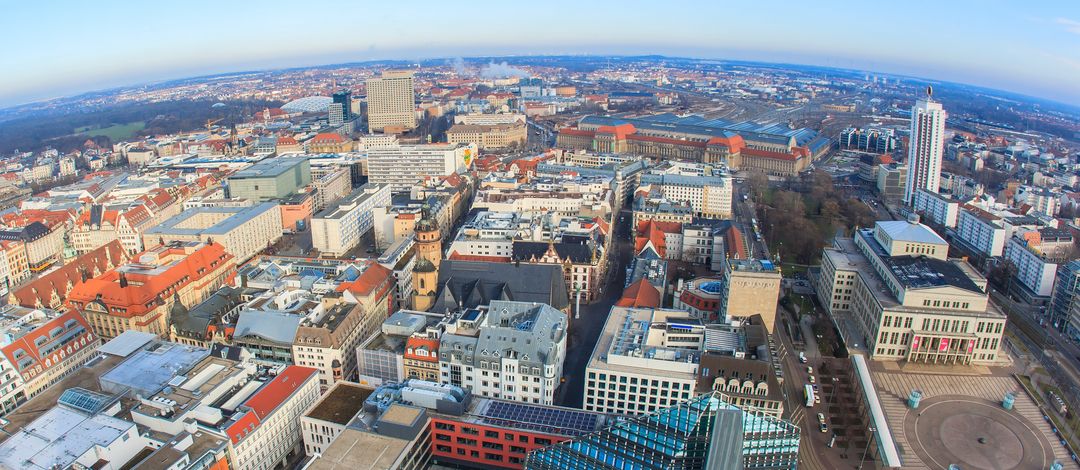Sustainable Real Estate and Urban Development
Our Team
Courses
In our courses, a good combination of theory and practice is emphasized. Students learn about economic models and methods, discuss the assumptions behind them, and reconcile them with empirical findings.
It is particularly important to us to encourage students to work with their own data. Collecting and processing data, evaluating it using modern statistical methods, and drawing relevant conclusions from it are skills that are becoming increasingly important nowadays and are in demand in numerous professional fields.
For this reason, our coursework also includes project-based group work. For example, in the Master's course “Big Data and Smart Cities,” students apply machine learning methods to predict real estate prices based on neighborhood characteristics or to predict the use of rental bicycles based on weather data.
Introduction to Urban Economics (B.Sc.)
(Course offered in German only) In der Stadtökonomie werden Städte aus einer ökonomische Perspektive analysiert, um Lösungen für praxisrelevante urbane Fragen zu entwickeln. In diesem Modul erhalten die Studierenden einen Einblick in die moderne stadtökonomische Forschung. Sie lernen Modelle, Analysetechniken und Datenquellen der Stadtökonomie kennen, um dann ein aktuelles Forschungspapier zu analysieren und zu diskutieren.
Growth, Distribution, Sustainability (B.Sc.)
(Course offered in German only) Die Vorlesung gibt den Studierenden einen fundierten, quantitativ ausgerichteten Einblick in die Themen des langfristigen Wirtschaftswachstums, der Verteilung des generierten Einkommens und des nachhaltigen Wirtschaftens. Nach der Diskussion von Wachstumsmodellen werden Konzepte der Einkommensungleichheit besprochen.
Schließlich wird der Nachhaltigkeitsaspekt der Wachstumsdebatte hinzugenommen und die Kernpunkte der “Grenzen des Wachstums” sowie “Green Growth” Ansätze diskutiert.
Big Data and Smart Cities (M.Sc.)
Data is everywhere - and the amount available is growing by the second. At the same time, our world is becoming more urbanized.
In this course, students will learn how to gather, process and analyze (big) data. They will get know statistical methods to draw insights from (big) data, discover patterns and relationships, and make predictions for urban life. In a nutshell, the question to be
answered is: How we use (big) data in a responsible way to make cities more efficient and sustainable?
Socio-Economic Issues of Urban Development (M.Sc.)
Cities face challenges as they grow. What are the needs and demands of residents as well as business executives to keep cities thriving, and how can public policy respond? We will be analyzing cities quantitatively, looking at income differences within cities, social segregration, business agglomeration and infrastructure connections. Examples from cities around the world will illustrate how climate change affects urban development and how cities respond to the challenges of the future.
We are happy to supervise quantitatively oriented theses in the subject area of the professorship. Please contact us at least 3-4 months before the planned start of your thesis.
Examples of Bachelor theses from pervious years:
- Zwischen Erhaltung und Verdrängung - Der Zusammenhang von Altbauten und Gentrifizierung
- Wie Kultur das Wohnen prägt – Der Zusammenhang zwischen Kultureinrichtungen und Bevölkerungsentwicklungen in Leipziger Ortsteilen
- Die Auswirkungen des Homeoffice auf die Wanderungsbeziehungen von Arbeitnehmer*innen für die Stadt in Leipzig
- Sozioökonomische Ungleichheit und das Sportangebot in Leipzig: Eine Analyse der Leipziger Stadtbezirke und Ortsteile
Examples of master theses from previous years:
- Does Sustainability affect the Real Estate Market Value? Empirical Evidence from the Office and Retail Buildings in Europe
- The Effect of Municipal Amalgamations on Migration
- Der Einfluss von Müllverbrennungsanlagen auf das lokale Abfallaufkommen privater Haushalte in Deutschland
- Developing a Heat Vulnerability Index for East German Cities Using Demographic, Socioeconomic and Environmental Data





